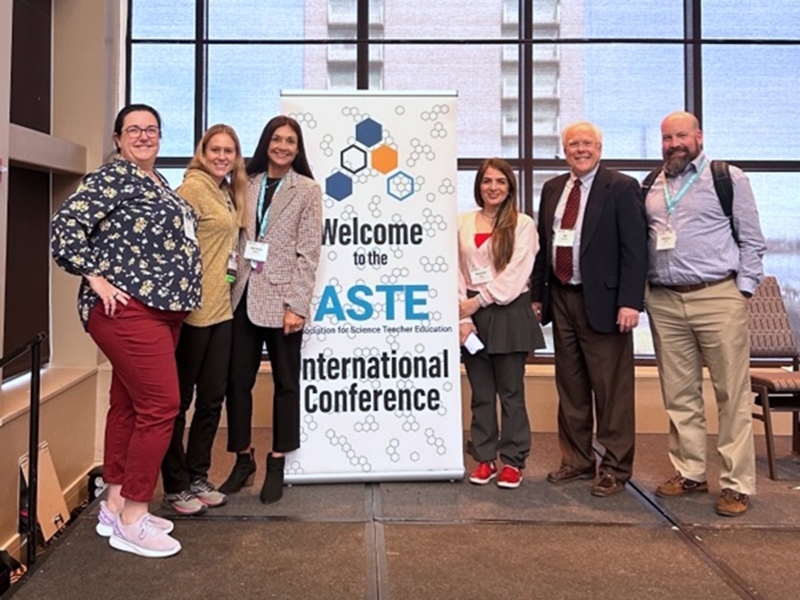William F. McComas was inaugurated the 85th president of the Association for Science Teacher Education (ASTE) on Jan. 13 at the organization’s annual meeting in New Orleans.
McComas, a professor of science education and inaugural holder of the Parks Family Endowed Professorship in Science Education in the College of Education and Health Professions, joins a long list of influential science educators, including one of his former graduate students and his dissertation adviser, to serve as president of the association.
Founded in 1932 as a non-profit, professional organization, ASTE is now a worldwide association with over 500 members. Composed of university-based educators, scientists, science coordinators and supervisors, and those serving in other informal science teaching environments, the organization is the professional home for those who prepare and provide professional development for teachers of science at all levels.
McComas has been active in ASTE since he was a graduate student at the University of Iowa. Before being inaugurated president, he served on the Board of Directors and was recognized with the group’s Outstanding Mentor and Outstanding Science Teacher Educator awards.
“I’m very happy to serve,” McComas said. “This organization has been a part of my life for over three decades, and I’m excited for the opportunity to advance and uphold ASTE’s numerous initiatives that provide a supportive professional network for those charged with educating the next generation of science teachers.”
The organization implements a unique model of leadership in which the incoming president, sitting president and former president all work together as a “presidential team.” McComas said this team makes for an effective way to share knowledge and wisdom with successive groups of leaders of the organization.
In his presidential address, McComas shared data from his recent study of ASTE members detailing some of the pressing and unanswered questions offered by these experts. These “grand challenges” in science teacher education include teacher recruitment and retention, what elements should be included in all science teacher education programs and the best ways to help teachers respond to the Next Generation Science Standards that are now in force across the nation.
McComas invited association members to work together to “establish an ASTE Collaborative for Research in Science Teacher Education to work on problems together with bigger sample sizes, more diverse populations and potentially more robust findings.”
McComas arrived at the U of A following service as a secondary biology teacher in suburban Philadelphia and a professorship at the University of Southern California. He has given almost 200 keynote speeches, delivered presentations in the U.S. and a dozen other countries and writes frequently on various science education topics.
His latest book, Nature of Science in Science Instruction: Rationales and Strategies, joins The Language of Science Education and a pictorial account of The Scopes Monkey Trial, co-written with Randy Moore, a professor at the University of Minnesota. McComas has served as the editor of The American Biology Teacher for over a decade and has been honored by numerous organizations for his work in evolution education, research in biology education, innovations in college science teaching, and, most recently, he received a lifetime achievement award from the National Association of Biology Teachers. McComas was a Fulbright Fellow at Dublin City University, Ireland, and is a Fellow of the American Association for the Advancement of Science and the Linnean Society in the United Kingdom.
Among all his achievements, McComas said he is particularly proud of the many students whose dissertations he chaired, 15 of whom are now professors of science education.


